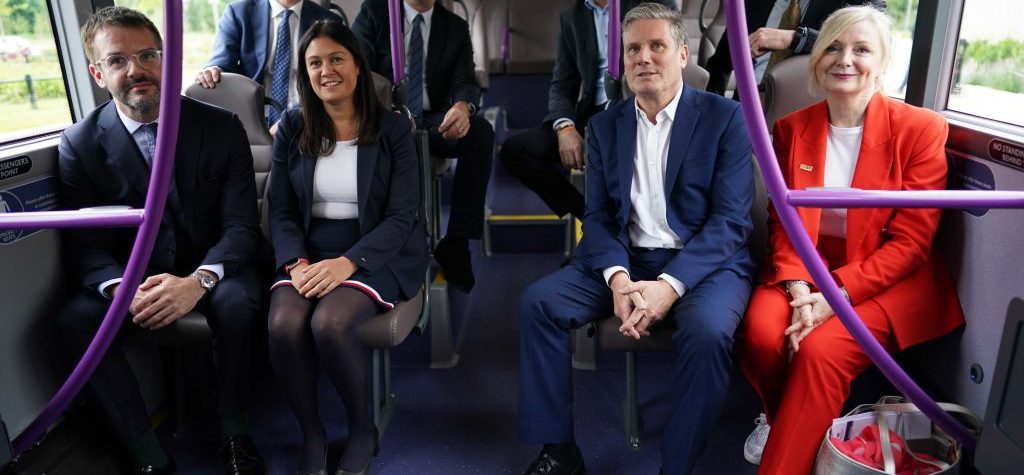In the spring of 2008, the journalist and food writer AA Gill found himself suffering through the thankless task of covering London’s third mayoral election. He looked around in disgust at the “inverted fantasy” of devolution prompted by a “fit of democratic largess” suffered by New Labour.
For Gill, London’s devolution spawned from “a fashionable moment in devolved government”. On this point at least he has been proved wrong. Devolution has become increasingly trendy; the government says it wants a “devolution revolution”. It’s difficult to find anyone who disagrees with the making of more mayors. In fact, it’s difficult to find many who disagree with much in the government’s Levelling Up white paper, which was published in February.
After all, the UK is famously centralised. Andrew Lewer MP, chair of the All-Party Parliamentary Group on Devolution, says the group’s research demonstrates that the UK has one of the most regionally unequal economies in the world. During the pandemic, praise for the flexibility and effectiveness afforded by highly devolved systems in Germany and South Korea was abound.
The Institute for Government (IfG) sees London’s mayoral history as a success: “all three London mayors have been high-profile and popular figures”. “The legitimacy of the mayor’s huge electoral mandate has been such that even ministers have found it hard to oppose elements of City Hall policy,” Tony Travers, director of the research group LSE London, told the IfG.
The mayor has bred such tangible changes as the introduction of the Oyster card, the Boris bike, the hopper fare, and more. The relative popularity of the mayoral system meant that the coalition government was keen to replicate it, creating mayors for six more regions: the West Midlands, the West of England, Tees Valley, and the cities of Liverpool, Manchester and Cambridge.
This year’s white paper claimed that “every part” of England that wanted them would be given “London-style” mayors. But how do you go about making a mayor?
The first step is to map out your region. If it’s a city, that’s relatively easy. But if it’s a combined authority, you have to work out which authorities are suitable for combination and you’ll want the region to feel connected.
Then you have to determine whether the chosen electorate actually wants a mayor. In 1998, Londoners voted overwhelmingly in favour of introducing a mayor (although the turnout was around 30 per cent). In 2014, the government decided to skip this step and simply imposed mayors on its chosen zones. The result has been less community feel and support, evidenced in far lower turnout for regional mayoral elections.
Next, you must determine what powers they are granted. Not all mayors are equal in this respect. The mayor of London is ostensibly in charge of policing, yet still relies on funds from the government and has to work with the government to pick out the boss of his police force.
The mayors of Greater Manchester and of the West Midlands, on the other hand, have had their roles combined with that of the police and crime commissioner.
“The one thing politicians will always vote for is more politics, so in 2000 they invented the post of mayor of London without ever really thinking what it was a mayor would do,” claimed AA Gill. That might be true with gimmick-style mayors, who have no real authority. But with directly elected mayors, it’s a different game.
The final stage in the making of such a mayor? Realising you may have unleashed a monster. Gordon Brown and Tony Blair were rather dismayed after establishing the mayor of London only for Ken “King Newt” Livingstone to be elected in 2000 and then re-elected in 2004. They did everything in their power to prevent his election, but Livingstone garnered support from socialist-leaning celebs and Labour members.
The current government fought with Greater Manchester’s mayor Andy Burnham relentlessly over Covid regulations in the north of England. More recently, they have picked a fight with mayor of London Sadiq Khan over funding for Transport for London, the city’s public transport operator.
City mayors are ganging up on an international stage. Groups such as Eurocities, the Global Parliament of Mayors and Core Cities UK conglomerate urban power; urbanites have their identities already carved out for them. For mayors to be successful, they need a convincing mandate and popular support: the community needs to get behind the idea.
For this, the government will need to carefully consider the regions chosen and ensure a sense of symbiosis. Without this, the UK’s new mayors will struggle to be as successful or effective as Mr Khan and his predecessors.


